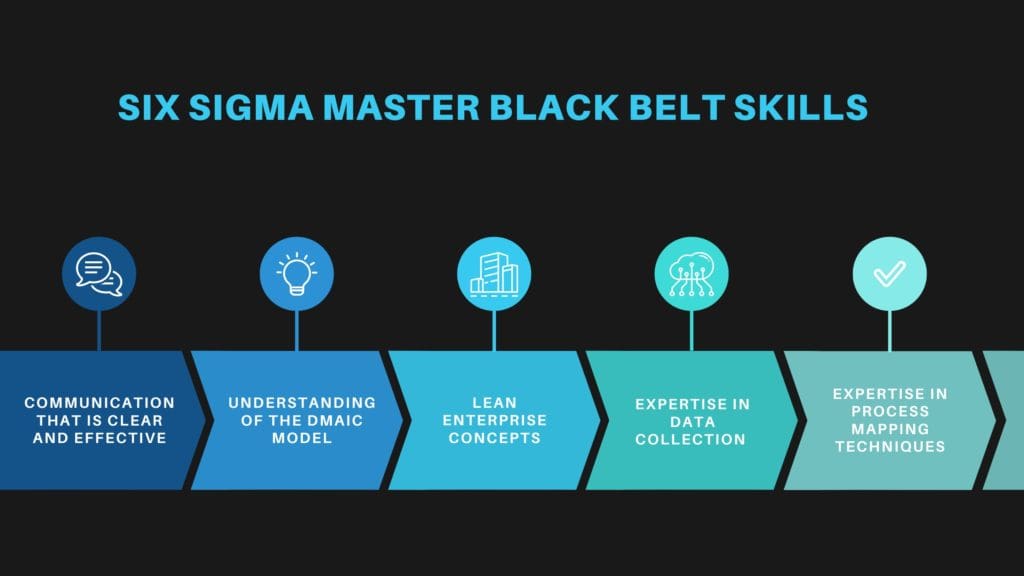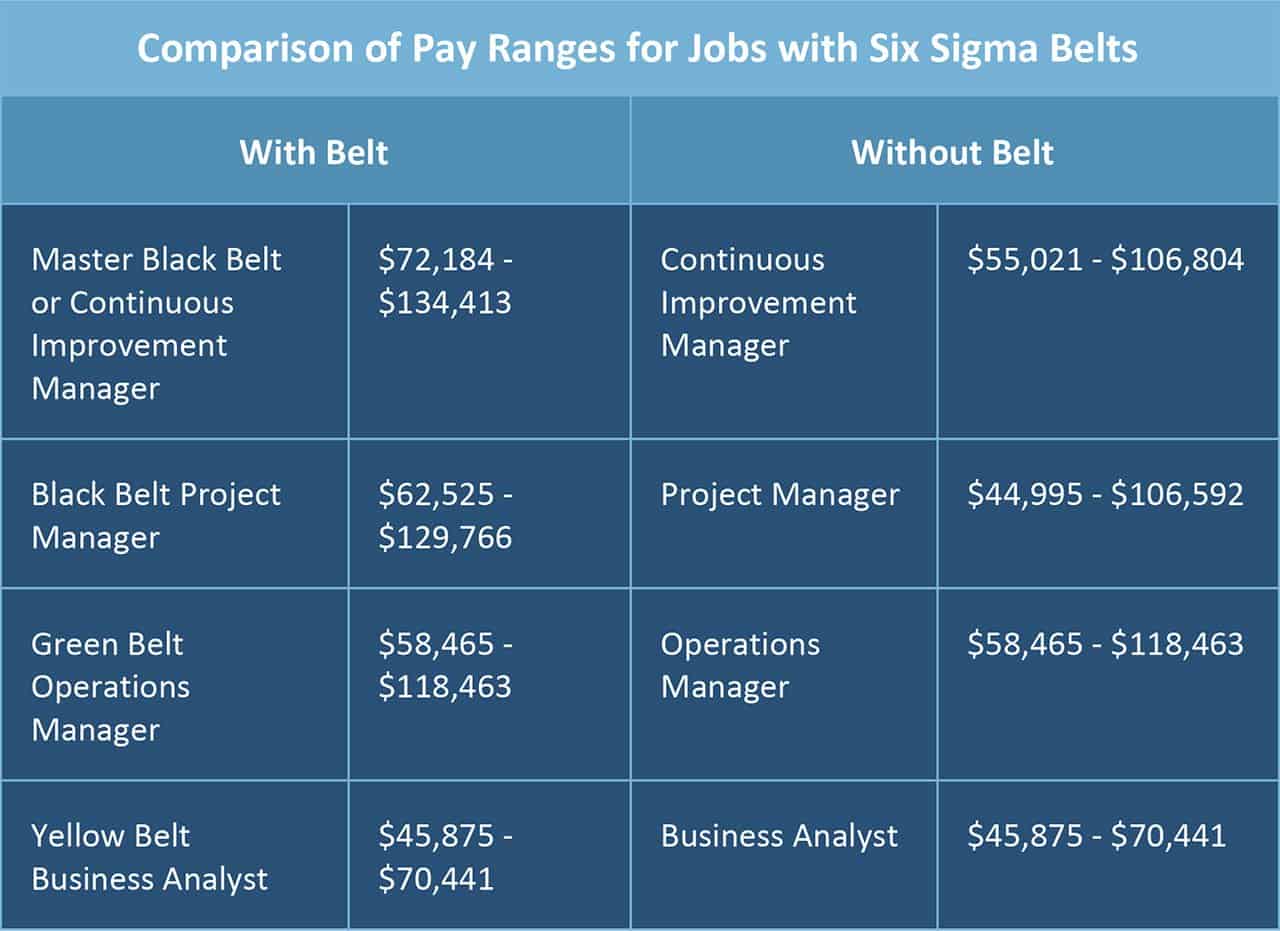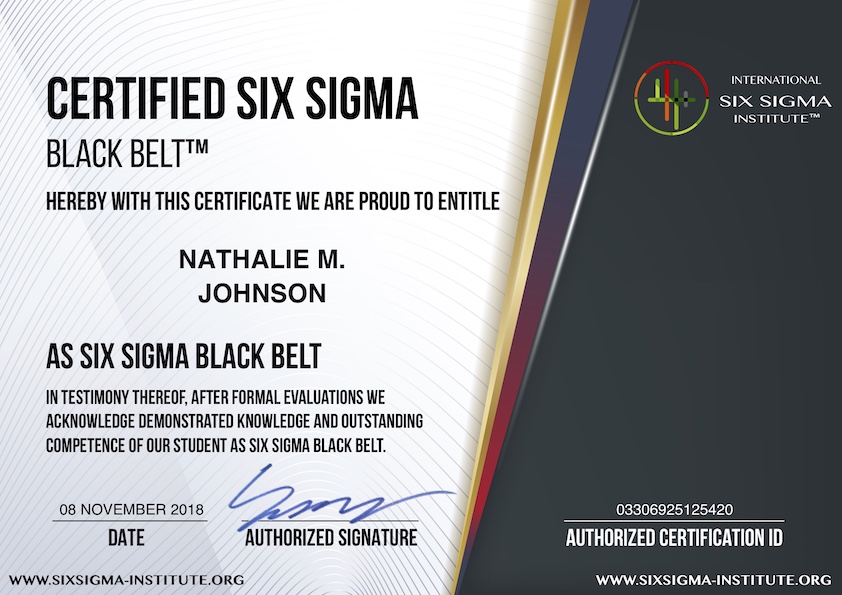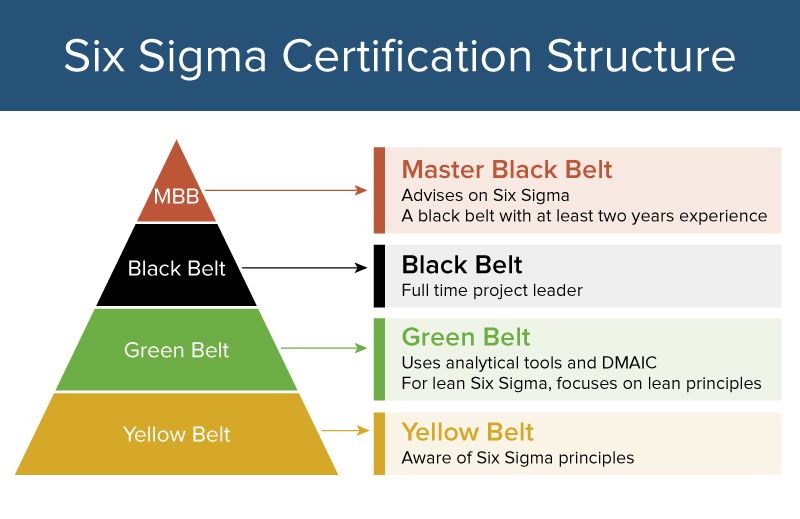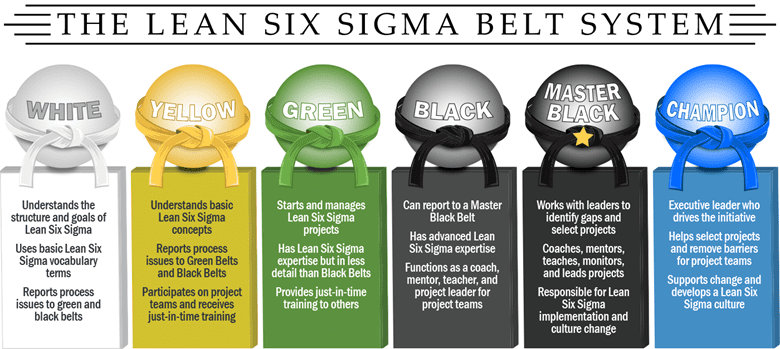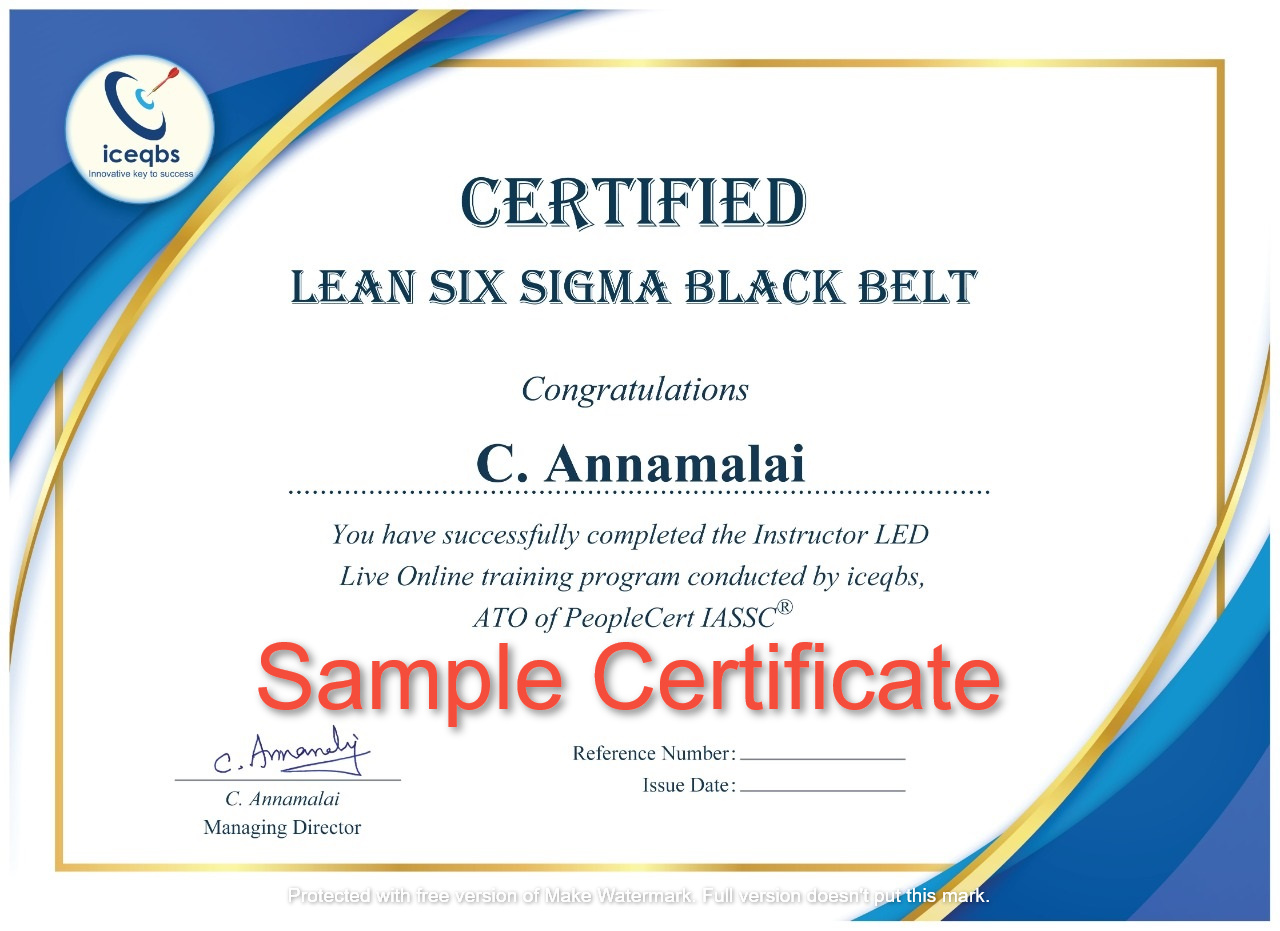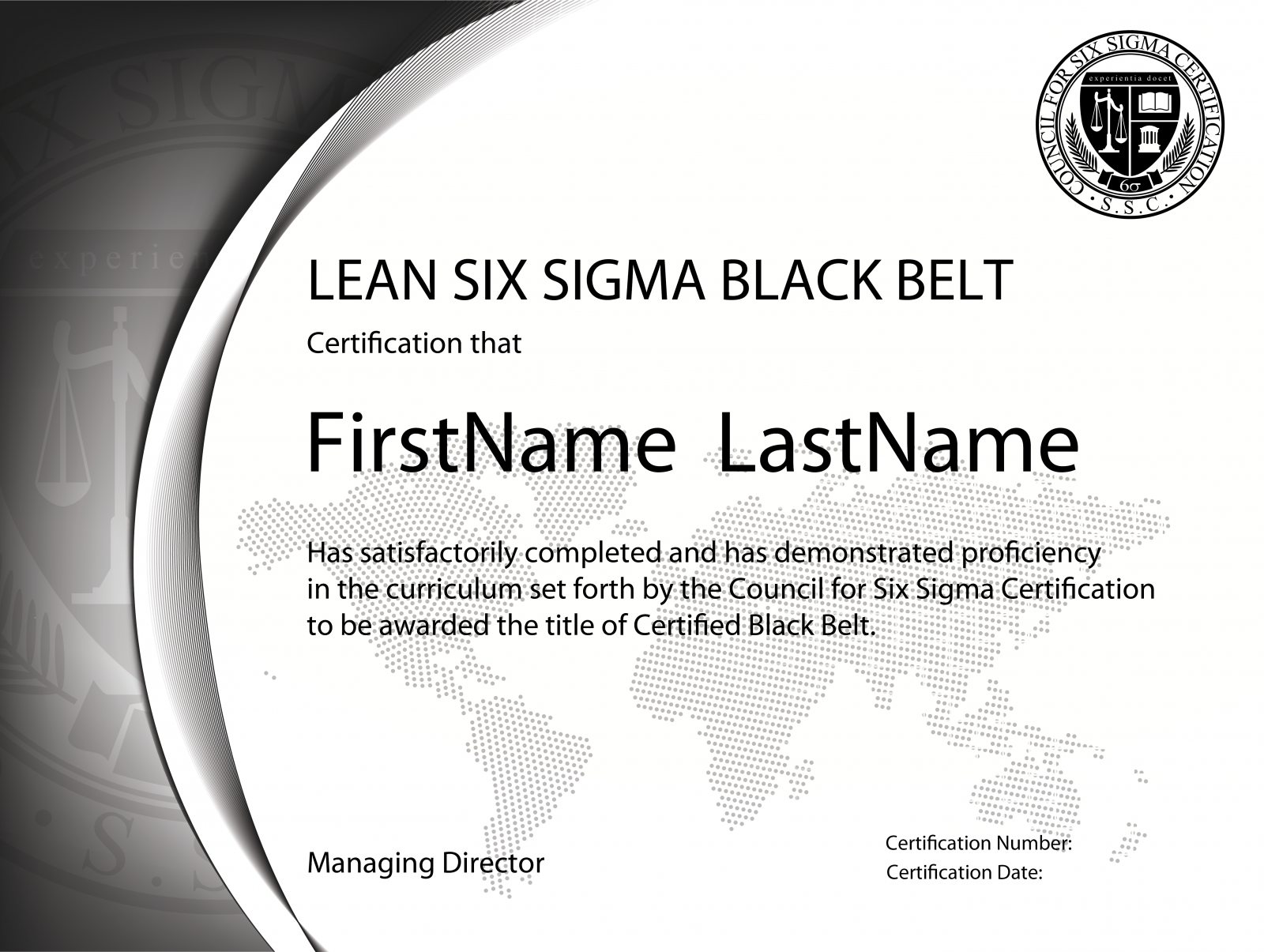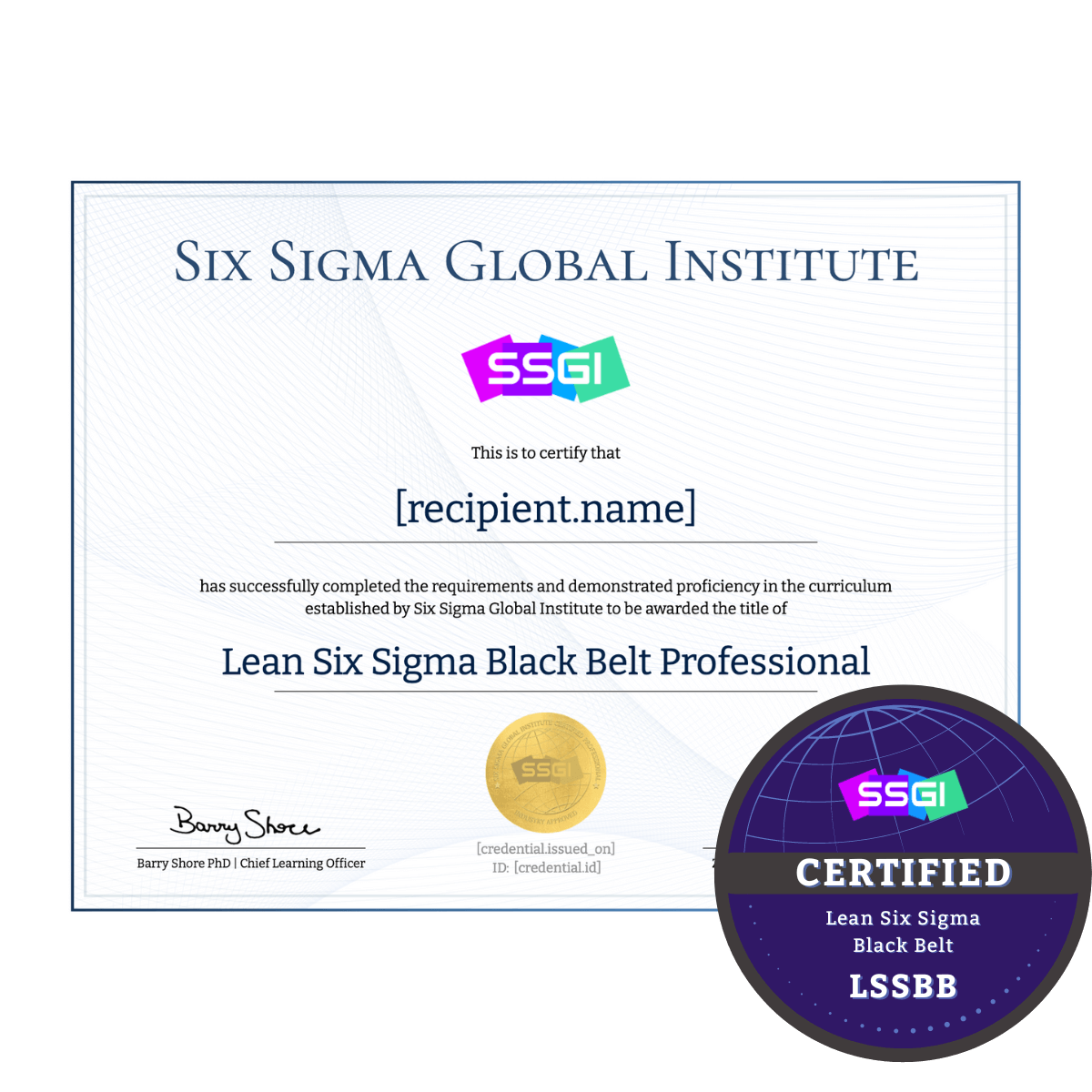Six Sigma Black Belt Certification Salary

In today's hyper-competitive business landscape, professionals are constantly seeking ways to enhance their skills and boost their earning potential. Among the various certifications available, Six Sigma Black Belt certification stands out as a highly valued credential. But how does this certification translate into actual salary gains?
This article delves into the earning potential associated with Six Sigma Black Belt certification. It explores the factors influencing salary, the industries where Black Belts are most in demand, and what individuals can expect in terms of compensation after achieving this prestigious qualification.
What is a Six Sigma Black Belt and What Do They Do?
A Six Sigma Black Belt is a professional trained in the Six Sigma methodology. This methodology focuses on process improvement and defect reduction.
They lead complex projects, analyze data, and implement solutions to enhance efficiency and profitability. Black Belts are change agents within organizations, driving continuous improvement initiatives.
Salary Expectations: A Data-Driven Perspective
Determining the average salary for a Six Sigma Black Belt requires analyzing data from various sources. Reputable salary websites like Glassdoor, Salary.com, and Indeed provide valuable insights.
These platforms collect salary data reported by individuals working in the field. These also incorporate job postings that list salary ranges for Six Sigma Black Belt positions.
According to data from these sources, the average salary for a Six Sigma Black Belt in the United States typically ranges from $90,000 to $130,000 per year. However, this range can vary significantly based on several factors.
Factors Influencing Six Sigma Black Belt Salary
Several factors contribute to the variability in Six Sigma Black Belt salaries. These include experience, education, industry, location, and specific skill set.
Experience and Education
Experience plays a crucial role in determining salary. Black Belts with several years of experience in process improvement and project management command higher salaries.
Advanced degrees, such as a master's degree in business administration (MBA) or engineering, can also lead to increased earning potential. Educational attainment signals a deeper understanding of business principles.
Industry and Location
The industry in which a Six Sigma Black Belt works significantly impacts their salary. Industries like manufacturing, healthcare, finance, and technology often offer higher salaries due to the complex processes and high stakes involved.
Geographic location also plays a significant role. Black Belts working in metropolitan areas with a high cost of living, such as New York City or San Francisco, typically earn more than those in smaller cities or rural areas.
Specific Skill Set
Beyond the core Six Sigma principles, specific skills can enhance a Black Belt's value and earning potential. Proficiency in statistical software, project management tools, and data analysis techniques are highly sought after.
Strong communication and leadership skills are also essential. These skills enable Black Belts to effectively lead teams and influence stakeholders.
Industries Where Six Sigma Black Belts Are in Demand
Six Sigma Black Belts are in demand across a wide range of industries. Their expertise in process improvement is valuable in any organization striving for efficiency and quality.
Manufacturing, healthcare, finance, and technology are particularly strong sectors for Black Belt employment. These industries often rely on Six Sigma methodologies to optimize operations and reduce costs.
The public sector and government agencies are also increasingly recognizing the value of Six Sigma. They are hiring Black Belts to improve service delivery and streamline processes.
The ROI of Six Sigma Black Belt Certification
Investing in Six Sigma Black Belt certification can provide a significant return on investment (ROI). The certification can lead to higher salaries and improved career prospects.
Companies often offer salary increases or promotions to employees who achieve Black Belt certification. This is a reflection of the value they place on process improvement expertise.
Furthermore, Black Belts often have the opportunity to take on leadership roles. They can lead strategic initiatives that drive significant improvements to the bottom line.
Future Outlook for Six Sigma Black Belts
The demand for Six Sigma Black Belts is expected to remain strong in the coming years. As businesses continue to focus on efficiency and quality, the need for process improvement experts will only increase.
The rise of data analytics and automation further enhances the value of Six Sigma. Black Belts are uniquely positioned to leverage these technologies to drive even greater improvements.
Continuous learning and adaptation are crucial for Black Belts to stay relevant in this evolving landscape. Staying up-to-date with the latest tools and techniques ensures continued success.
Conclusion
Six Sigma Black Belt certification can be a valuable investment for professionals seeking to advance their careers and increase their earning potential. While salaries vary based on experience, industry, and location, the certification generally leads to significant financial rewards.
As businesses continue to prioritize process improvement and efficiency, the demand for Black Belts is expected to remain strong. Individuals who invest in this certification can expect to see a positive return on investment and a rewarding career path.
Ultimately, the value of a Six Sigma Black Belt lies in their ability to drive meaningful change within organizations. This expertise translates into both professional recognition and financial success.
